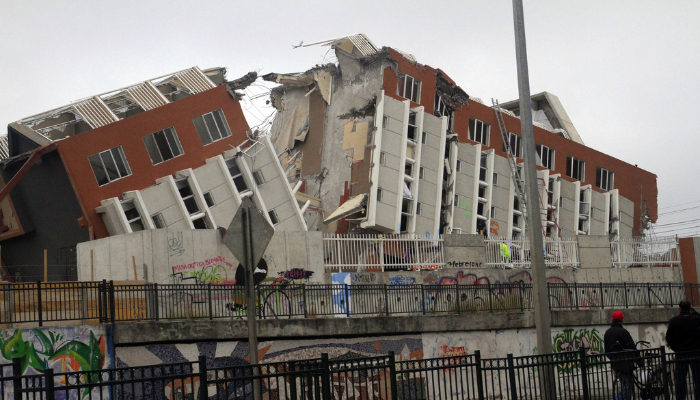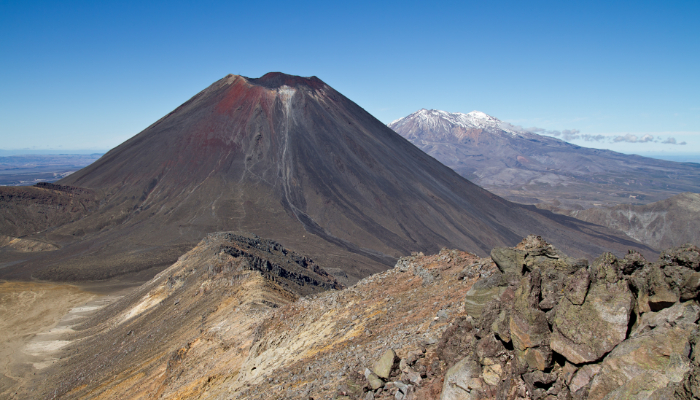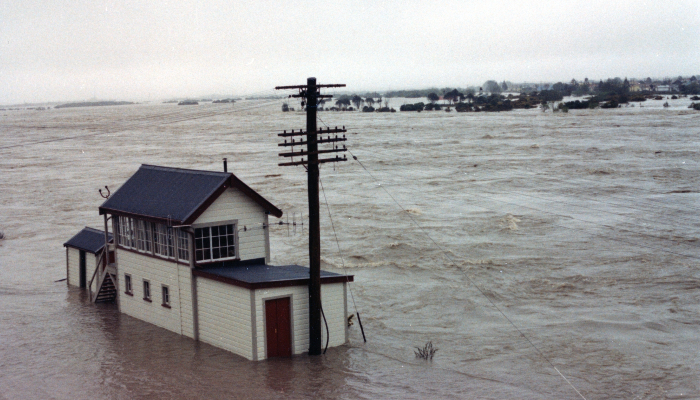Tsunamis
Where can I find information about tsunamis?
(Years 5-8)

Image: 2011 Tohoku earthquake tsunami in Miyako by 岩手県宮古市 on Wikimedia Commons.
Entry last updated: 10/07/25
Introduction
Tsunami is a Japanese word that means 'great harbour wave'. These giant ocean waves are caused by earthquakes, volcanic eruptions, or landslides on the ocean floor. Tsunamis can also happen in lakes. The powerful waves can cause a huge amount of destruction to life, buildings and the environment when they reach land.
Well-known tsunamis
There have been a large number of significant tsunamis in history. The most destructive have been:
Sumatra, Indonesia — 26 December 2004
North Pacific Coast, Japan — 11 March 2011
Lisbon, Portugal — 1 November 1755
Krakatau, Indonesia — 27 August 1883
Enshunada Sea, Japan — 20 September 1498
Nankaido, Japan — 28 October 1707
Sanriku, Japan — 15 June 1896
Northern Chile — 13 August 1868.
There have also been major Tsunamis in New Zealand. These include:
1855 — following the Wairarapa earthquake
1868 — following an earthquake on the Peru-Chile border
2016 — Kaikoura Tsunami following the Kaikoura earthquake.
New Zealand tsunamis
These sites talk about the history of tsunamis in New Zealand and what to do during a tsunami.
Te Ara: the Encyclopedia of New Zealand
Te Ara is an excellent starting point for all questions about the history of Aotearoa New Zealand. If we look at the bottom of the page we can see that the website belongs to the Ministry for Culture & Heritage, so the information is well-researched and reliable.
Enter the keyword 'tsunami' into the search bar at the top of the page.
Select the entry called Tsunamis.
Read about the history of tsunamis in New Zealand, the warning systems and evacuation plans in case of a tsunami threat.
Tips: We like sites like this because they’re reliable. You can tell because of their web address. They have .govt or .ac, meaning they are from government or educational organisations. They’re also New Zealand sites, so relevant for us.
This website has been put together by the National Emergency Management Agency (NEMA). It has information on what to do before, after, and during emergencies such as floods, earthquakes, and tsunamis.
Select the In an emergency tab and choose Tsunami.
Watch the video at the top of the page.
Look down the page for different sections on Get ready before a tsunami, What to do during a tsunami, and What to do after a tsunami.
What are tsunamis?
The following are reliable websites that have good information about how tsunamis are formed, the destruction is can cause and tsunami warning systems.
This is a useful website with quality information, videos and resources on the earth and its people.
Enter the keyword 'Tsunami' into the search bar at the top of the page.
Tsunami 101 is a good starting point.
This page has a short video is about how tsunamis are formed and the destruction they can cause.
Tips: Search words, or keywords, are the most important words in our question. You can leave out small words like ‘the’ and ‘of’ and just choose the main ones, eg tsunami. We can always change our keywords or add more if we need to.
GNS Science is an excellent New Zealand website which covers information on a range of topics including tsunamis, earthquakes and volcanoes.
Enter the keyword 'Tsunami' into the search bar at the top of the page.
Select the article called Tsunami.
This page is about the history and understanding of tsunamis in New Zealand.
At the end of the page is a link to Tsunami in New Zealand.
Read about tsunami risks, causes and consequences of tsunamis and tsunami warning systems.
Tips: We like sites that are from government or other reputable organisations, because we can trust the information. You can sometimes tell these sites by their web address – they might have .govt or .edu in their address – or by looking at their About us page.
How do tsunamis work?
The following websites provide information about how a tsunami begins and its movement in the ocean.
This is one of the EPIC resources, which is a collection of reliable databases covering lots of different topics. It’s put together especially for New Zealand school students and helps to answer questions like this.
Enter the keyword 'tsunami' into the search bar.
Select the page called tsunami (giant sea wave).
At the top of the page is a diagram explaining how a tsunami moves.
For more information select
Reading level 2, then go to Wave properties to read how a tsunami travels.
Tips: To use the EPIC resources, you need a password from your school librarian. Or chat with one of our AnyQuestions librarians to help you online. Some EPIC databases may also be available through your public library.
HowStuffWorks is a good website for finding out how all sorts of things work. Often the articles we find will go over multiple pages, so we need to look through them to find more information. This site is particularly good for explaining the causes of a tsunami.
Enter the keyword 'tsunami' into the search bar.
Select the page called How Tsunamis work.
Use the Next page button to take you to the pages on this topic.
Tips: Websites with .com or .co in the address can have good information, but you need to assess their reliability. Check the About us link on the website if you can find one. That can tell you the company’s mission and values.
Effects
Tsunamis can strike without warning resulting in significant loss of lives and extensive damage to buildings and the coastal environment. The following websites have information about the effects of a tsunami.
Britannica School Middle from the EPIC databases is a good place to find information on the effects of tsunamis.
Enter the keywords 'tsunami effects' into the search bar.
Read the articles Japan earthquake and tsunami of 2011 and Indian Ocean tsunami of 2004.
Both articles have information on the impact of tsunamis on life and coastal areas of many countries.
Tips: To use the EPIC resources, you need a password from your school librarian. Or chat with one of our AnyQuestions librarians to help you online. Some EPIC databases may also be available through your public library.
This is a website from BBC (British Broadcasting Corporation), the official broadcasting channel in the United Kingdom. You will find resources to support the UK Curriculum school subjects.
Enter the word 'tsunami' into the search bar.
Select the article Earthquakes and tsunami — WJEC.
Look at the contents listed under Pages to find Case study: Japan tsunami 2011. This is about the impacts of this tsunami in Japan.
Tips: Some websites have .au, .nz, .uk or other codes in their url. This can tell you which country this website comes from eg .au is from Australia or .nz is from New Zealand. You can check the About Us link on the website for more information.
Books
Here are some suggested books about tsunamis and their impacts on people and the environment. Check your local public or school library to see what else they have.
Tsunami by Anne Rooney
Tsunami kids by Rob Forkan, Paul Forkan and Nick Harding
Tsunami by Jennifer Lombardo
Terrible tsunamis by Charlotte Taylor
SCIS no: 1881619



